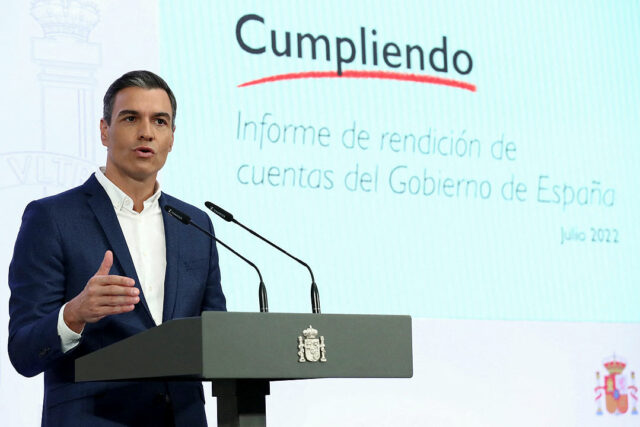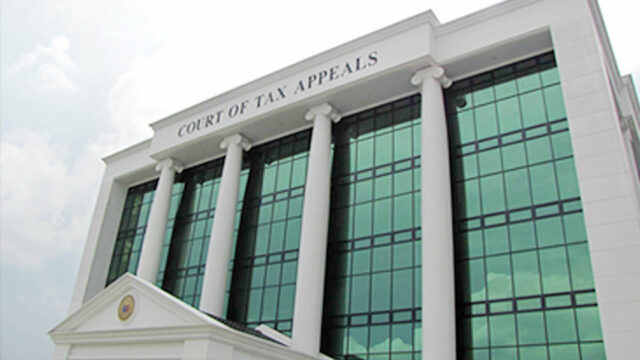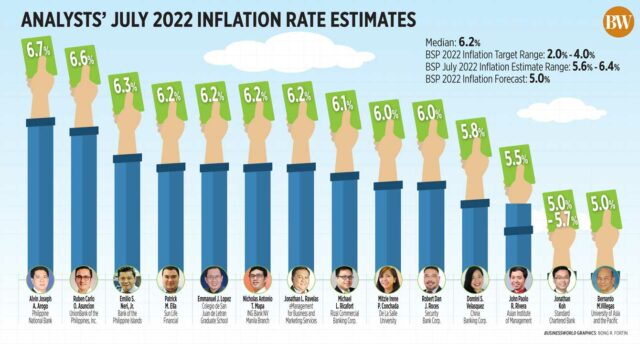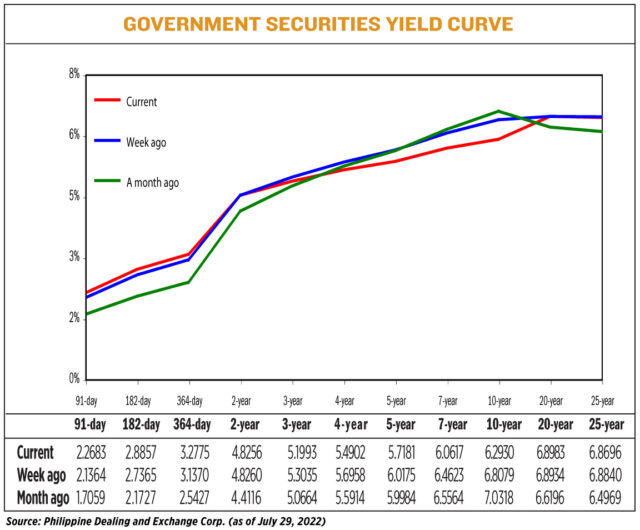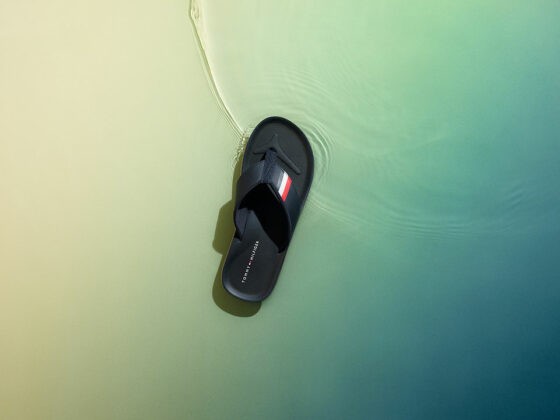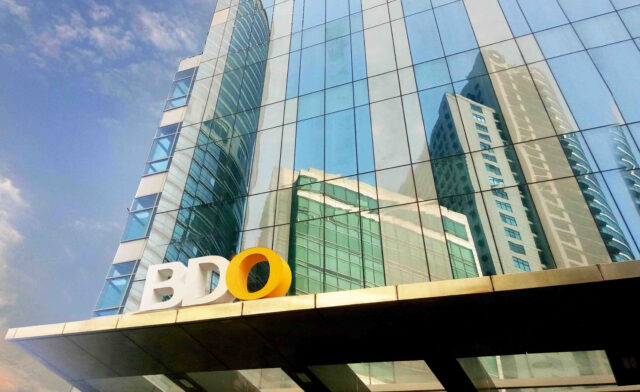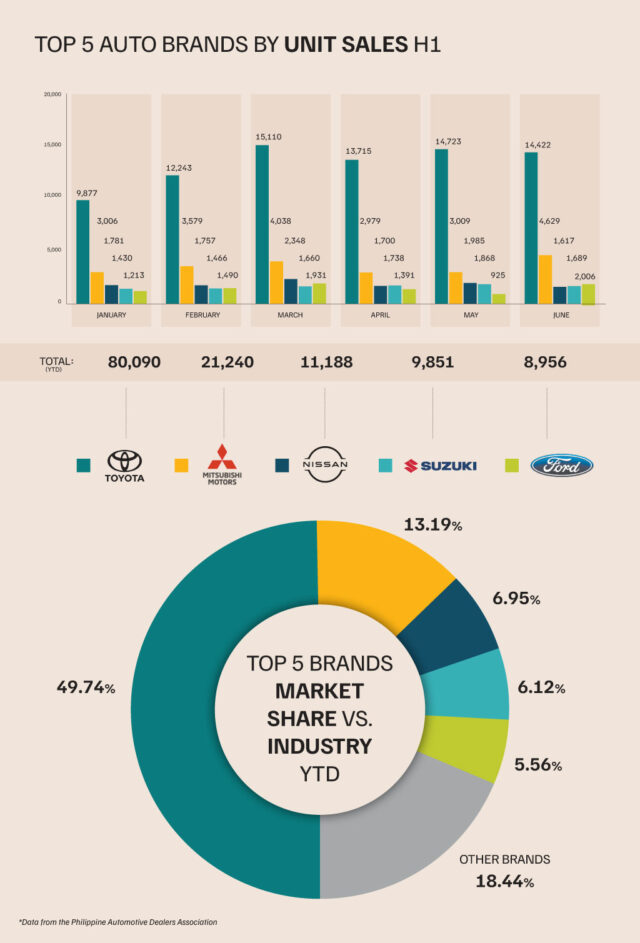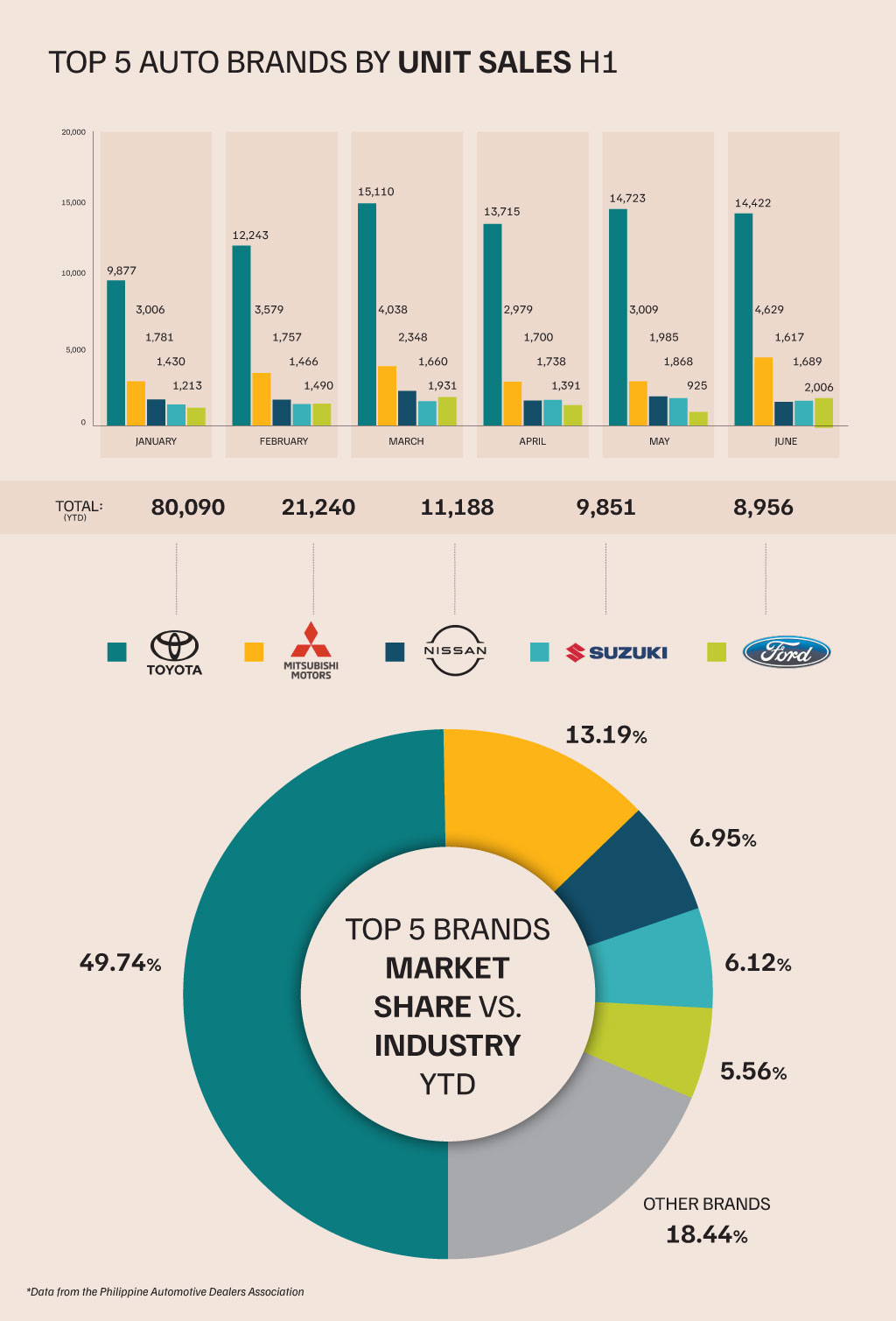YIELDS on government securities (GS) were mixed last week on strong demand for longer tenors and US Federal Reserve’s continued policy tightening.
GS yields, which move opposite to prices, at the secondary market fell by 10.12 basis points (bps) on average week on week, based on the PHP Bloomberg Valuation Service (BVAL) Reference Rates as of July 29 published on the Philippine Dealing System’s website.
The front end of the curve rose as the rates of the 91-, 182-, and 364-day Treasury bills (T-bills) went up by 13.19 bps (to 2.2683%), 14.92 bps (2.8857%), and 14.05 bps (3.2775%), respectively.
Meanwhile, yields at the belly of the curve dropped. The rates of the two-, three-, four-, five-, and seven-year bonds declined by 0.04 bp (to 4.8256%), 10.42 bps (5.1993%), 20.56 bps (5.4902%), 29.94 bps (5.7181%), and 51.49 bps (6.0617%), respectively.
At the long end of the curve, yields ended mixed. Yields on the 10- and 25-year papers dropped by 51.49 bps (6.293%) and 1.44 bps (6.8696%), respectively, while the 20-year T-bond’s rate edged up by 0.49 bp to 6.8983%.
Total GS volume traded last Friday almost doubled to P20.697 billion from the P10.693 billion seen on July 22.
“The local GS curve continued its flattening trend, which means yields of short-term securities rose compared to the significant drop of yields on the belly to long-end securities,” a bond trader said in a Viber message last Friday.
“Dealers and investors alike are seen extending their duration for yield pickup as evidenced by very strong demand during the 14-year auction last Tuesday,” the bond trader added.
The Bureau of the Treasury made a full P35-billion award of its offer of reissued benchmark 25-year T-bonds last week as tenders reached P93.998 billion. The bonds, which have a remaining life of 13 years and four months, were awarded at yields ranging from 6.75% to 6.949%, causing the average rate to reach 6.894%, lower than the 8.125% fetched the papers were first offered on Dec. 14, 2010.
“The strong market demand for long-term government securities and corporate bonds recently also partly led to the sharp decline in the long-term PHP BVAL yields, after local bond yields reached pre-pandemic highs (highest in 2-3 years) and among economic cycle highs amid possible US economic recession,” Rizal Commercial Banking Corp. Chief Economist Michael L. Ricafort said in an e-mail on Friday.
Mr. Ricafort expects yields on short-dated papers to continue to go up and those on longer tenors to ease further this week after the US Federal Reserve hiked rates anew on Wednesday.
“Treasury bond auction yields and long-end PHP BVAL yields could continue to ease after reaching pre-pandemic highs last month (highest in 2-3 years) amid risk of US recession that could slow down any future Fed rate hikes,” he said.
The Fed last week raised its key rates by 75 bps for the second straight meeting, as expected, to temper rising inflation. To date, the Fed has raised its policy rates by a total of 225 bps.
The bond trader expects yields to move sideways this week, driven by the 3.5-year T-bonds to be auctioned off on Tuesday and the July inflation print to be released on Aug. 5.
“BSP (Bangko Sentral ng Pilipinas) Governor Felipe M. Medalla earlier pronounced that monetary policy tightening will persist in the coming months mainly to mitigate risks to inflation,” the trader said.
“Consequently, market players could be more cautious for the week which may cause yields to consolidate given the recent bond market rally,” the bond trader said.
Mr. Medalla last week signaled an interest rate hike of 25 or 50 bps at their Aug. 18 meeting, although he ruled out another off-cycle increase.
The Monetary Board has raised benchmark interest rates by a total of 125 bps so far this year as inflation continues to remain elevated.
A BusinessWorld poll of 14 economists last week yielded a median estimate of 6.2% for July headline inflation, within the central bank’s forecast of 5.6% to 6.4% for the month.
If realized, this would be faster than the 6.1% reading in June as well as the 3.7% posted the same month last year, and would be the quickest in nearly four years (45 months) or since 6.9% in October 2018.
It would also mark the fourth straight month that inflation went above the central bank’s 2-4% target this year. — Ana Olivia A. Tirona




